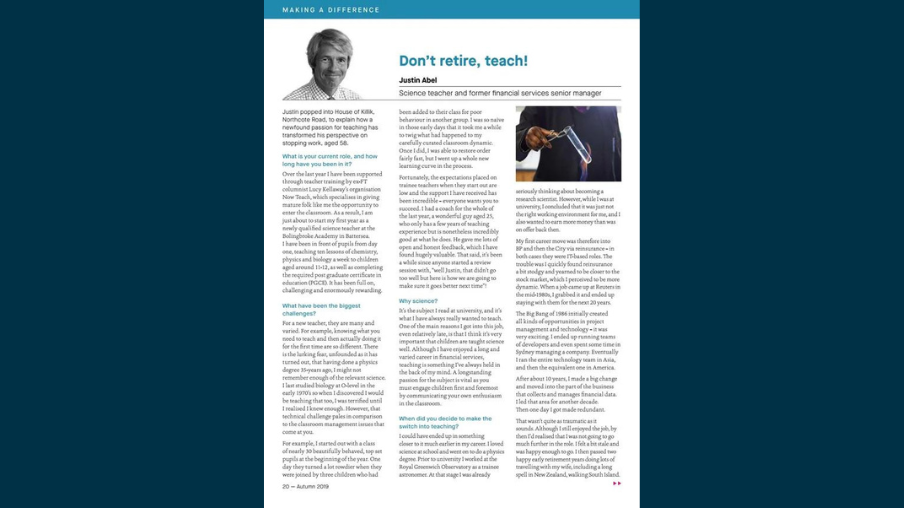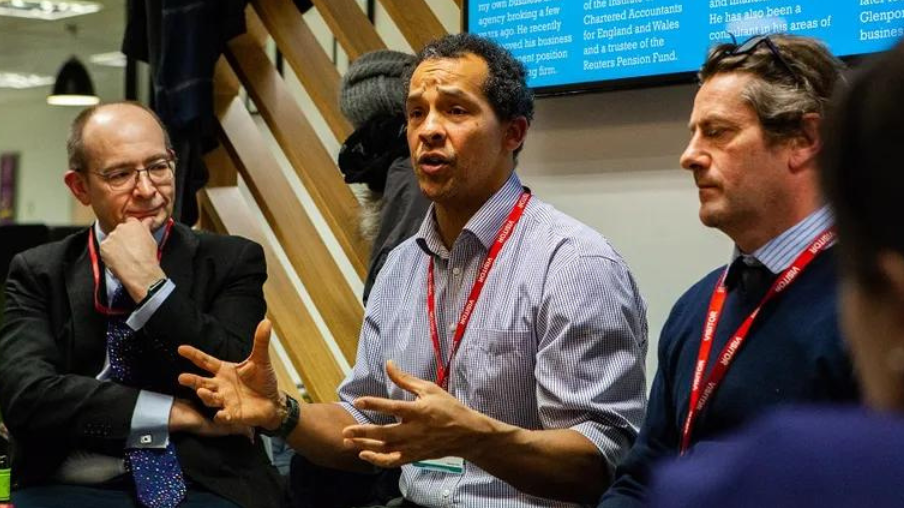Change can provoke concern but the good news is you can face it and move past it.
Let's look at some practicalities:
- Mentally preparing yourself for failure or rejection
- Embracing returning to education as a mature student
- Adjusting and organising your finances for your career switch
Advice from an astronaut: experiencing rejection
Nobody enjoys rejection, especially if you’re exceptionally skilled in one field or have worked your way to the top. But rejection is a risk we face when we try something new – like changing careers.
So, how do we manage it? Astronaut, Sian Leo Proctor, says you have to shift your thinking: Join Our Network For Free - Deadline 15th JuneApplication Formhttps://nowteach.org.uk/apply-nowApplyJoin Our Network For Free - Deadline 15th June“The way you have this conversation with yourself in your head matters.”
When NASA didn’t select her to go to space, Dr. Proctor chose to celebrate making the final 1% instead of spiraling into self-doubt. She later became the first African-American woman to pilot a spacecraft.
So, what can we take away from this? Rejection can be an opportunity. Always try again.
Why you shouldn’t fear returning to education as mature student
Fitting in with younger students, keeping up with the technological side of learning, and funding studying are just some of the concerns you might have.
But don’t worry, Restless - a digital community for over 50s – explain in their blog how you can overcome this and successfully set off on your educational journey.
“I just got on so well with everyone and there was no age difference in their eyes. Well, if there was, it didn’t appear like that. I think they kept me going and kept me young.”
3 ways to financially prepare for a career switch
Finances can often be an obstacle when changing careers, especially if you’re starting fresh in a new sector, going back into education, or taking a role that pays significantly less than you’re used to.
Discover share their top tips on how career switchers can prepare for a change in finances.
-
Create a financial plan: adjust your budget and save money for any timely gaps you might experience with no income.
-
Fine-tune your savings: reduce unnecessary expenses, pick the right type of savings account, pay down debt, and start an emergency fund.
-
Approach at a gradual pace: moonlight or have a side hustle before you go full-time.
“Preparation in every form - from updating job skills to financial planning and really taking time to think about what you desire in a fulfilling career - will be a huge factor in your career-change success.”
---
If you found this useful and want to explore a second career, let's talk!




